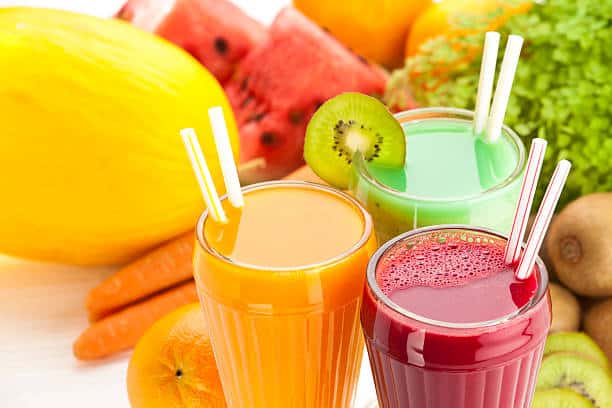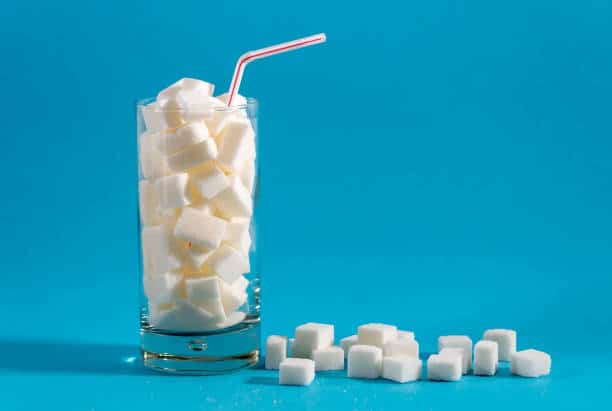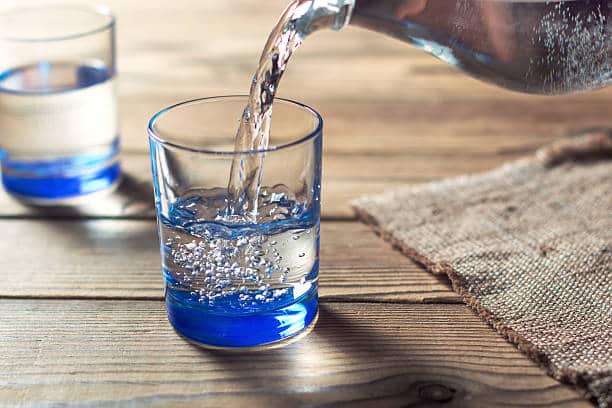If you’ve been diagnosed with a blood sugar issue, changing your diet and replacing sugary snacks and soda with water will help you feel full longer and reduce your cravings for unhealthy foods. This article will tackle the health benefits of water and how much you should drink after binge eating on sugar.
Where can I find sugar?
Sugars are found naturally in many nutritious foods, such as dairy products, vegetables, and fruit. The addition of sugar improves the flavor of these items. These foods also supply a variety of other nutrients that are beneficial to health, so it’s crucial to incorporate them into one’s diet.


Why too much sugar is not good for your health
Manufacturers frequently add sugar to cereals, pastries, and drinks. These free sugars, also known as added sugars, are the culprits behind the health issues people are experiencing today. Too much sugar in the diet is linked to various health issues, including obesity, diabetes, tooth decay, and more.
It does not have nutrient content/nutritional value
Sugar has no nutritional value. These foods and beverages are typically metabolized rapidly by the body. That makes them a poor choice of fuel. Hence, it has little nutritional value and greatly raises the calorie count of foods and drinks when added.
Note that sugar in nature is not the same as added sugar. Sugars are found naturally in fruits and dairy products, for instance. Due to their slower rate of digestion, these foods provide sustained energy.
Foods and drinks with nutritional value are more beneficial to health than those with empty calories. The latter can lead to nutritional deficiencies, worsening existing health problems.
It contributes to weight gain
The calories in sweet meals and drinks tend to be rather high. Even with regular exercise, excessive use of these goods will cause weight gain. The research strongly supports that.
Products with added sugars tend to be digested more quickly by the body. Therefore they do not effectively stave off hunger for long. This may result in increased caloric consumption due to more frequent feeding throughout the day.
To control hunger, the body produces a hormone called leptin. Obesity and excessive weight gain are possible outcomes of leptin dysfunction.
However, it’s vital to remember that sugar isn’t the sole culprit in obesity and weight gain; it is just contributing factor. Overweight and obesity result from multiple variables, including but not limited to one’s eating habits, genetics, lifestyle, and social and environmental context. But it does not undermine that reducing sugar intake is one of the simplest strategies to avoid putting on extra pounds.
It triggers tooth decay

A sugar-heavy diet will have long-term consequences. Cavities (holes in the teeth) and tooth decay are possible outcomes of a diet high in sugar. Plaque forms after sugar are consumed and are deposited on teeth by oral bacteria. This causes cavities due to the reactions taking place, which release acid. Cavities are permanent and cannot be undone naturally.
It increases the risk of coronary illnesses
It is recommended that men less than 36 grams (g) of added sugar per day and that women consume no more than 25 g per day to maintain a healthy diet. Otherwise, diets high in sugar may pose a threat to cardiovascular health.
People whose diets contain large amounts of added sugar have a dramatically increased risk of death from cardiovascular disease compared to those with low levels of added sugar.
One approach to avoid purchasing foods with added sugar is to read the labels. However, due to the widespread use of alternative names for sugar, it can be difficult to determine from the labels of some foods whether or not they contain added sugar. Here are some alternate names for sugar:
- agave nectar
- corn sweetener
- crystalline fructose
- dextrose
- evaporated cane juice
- high-fructose corn syrup
- honey
- maltose
- molasses
- sucrose

It increases the risk of diabetes
Sugar consumption is not directly the cause of diabetes. However, consumption of such is associated with a higher risk of developing type 2 diabetes. Why? Because type 2 diabetes is a common consequence of a calorie-rich diet, sugary foods and drinks contain many calories.
Particularly problematic are sugary beverages. Data from 310,819 participants showed that those who drank more sugary beverages had a 26 percent higher chance of developing type 2 diabetes than those who drank less. According to the research, “high intake” was determined to be between one and two daily sugary drink consumption.
Why you should drink water
Your body’s cells then send chemical signals to the brain telling you to drink water. In a closed-loop system, your brain can predict when you will be most dehydrated and alert you then. When the hypothalamus detects an increase in blood sugar, it signals thirst.
You should drink water because your kidneys and the rest of your body will function better if you drink enough water. It also helps you stay hydrated and gives you the energy you need to power through those intense exercises.
Moreover, water maintains cellular vitality by delivering oxygen and nutrients to cells and controlling internal temperature. It also helps keep your blood from getting too dry and your electrolytes from balancing.
Also, water helps lubricate your joints, maintain the skin’s natural suppleness, restore digestive health and ward against constipation.
How much water should you drink?

Unfortunately, the solution isn’t quite obvious. The amount of water you require depends on many factors, including your metabolism, age, and ambient temperature.
The sweat you produce also affects how much water you require each day. You require more water on days when you work out vigorously than on days when you work out more gently.
If you want to know if you need to drink more water, concentrate on your urine. The appearance and smell of it can indicate whether you need to drink more water. If your pee has little to no odor and is pale or almost clear, you probably have enough fluids in your system. Drink extra water if it is dark yellow and has a strong ammonia smell.
Ways for preventing a sugar crash
The purpose of these guidelines is to aid in recovery from the after-effects of a sugar binge. However, adopting a long-term perspective on nutrition and getting back to a regular eating routine is still the best option.
Increase your water intake
If you want to prevent your body from storing hundreds of extra calories as glycogen after a sugar binge, it’s important to drink plenty of water throughout the binge. You’re storing a lot of water along with your carbs since your body saves around three grams of water for one gram of glucose. This explains why eating a lot of carbohydrates causes water retention.
Consume a diet rich in whole, low-carb meals
Eat a lot of fruits and vegetables and lean meats. If your macros permit it, even healthy grains like quinoa or the sugar substitutes in fruit can help you stabilize. Doing so can assist in maintaining a steady blood sugar level, reducing the likelihood that you’ll experience a negative emotional reaction and relapse into binge eating.
Make sure that your blood sugar is stable
Maintain a steady blood sugar level because quitting sugar might cause cravings and fatigue if your glucose levels drop too low. This can lead to headaches, migraines, and even mood swings.
Maintain a regular eating schedule
Consume meals at predetermined times; otherwise, you risk developing disordered eating habits, including bingeing, restricting, and purging.
Include anti-inflammatory food in your meal
A diet low in sugar and other inflammatory foods is recommended since your cells struggle with persistent inflammation after a sugar binge and need the nutrients to repair themselves.
Do not do intermittent fasting
It’s tempting to go without food the day after indulging in a sugar binge but resist the urge. You may wish to restore your body’s energy levels or counteract the excess calories consumed. There are several health benefits to fasting, but if you’ve recently overindulged in sugar, you’d be better off eating many high-quality whole foods and skipping the fast for the day. In other words, never skip a meal.
Consume electrolytes
An electrolyte boost can help you feel better after a carb binge. You’ll lose a lot of salt and potassium when you switch back to a low-carb diet because your body will use up its stored supply of carbohydrates to produce energy while flushing out the water it absorbed. Reduce dehydration-related headaches and weariness by taking an electrolyte-rich supplement.
Conclusion
Sugar is healthy for you in moderation, but too much of it might increase your risk of type 2 diabetes, type 2 diabetes-related weight gain, acne, and other major medical disorders. Foods and beverages with added sugar have no nutritional value, in contrast to those that naturally contain sugar. Due to the body’s rapid digestion of additional sugar, they are also a subpar energy source. Overeating may eventually lead to health issues.

Jay
Jay is a health and wellness enthusiast with expertise in water quality and nutrition. As a knowledgeable advocate for holistic well-being, Jay successfully manages Type 2 Diabetes through informed lifestyle choices. Committed to sharing reliable and authoritative insights, Jay combines firsthand experience with a passion for enhancing health."
